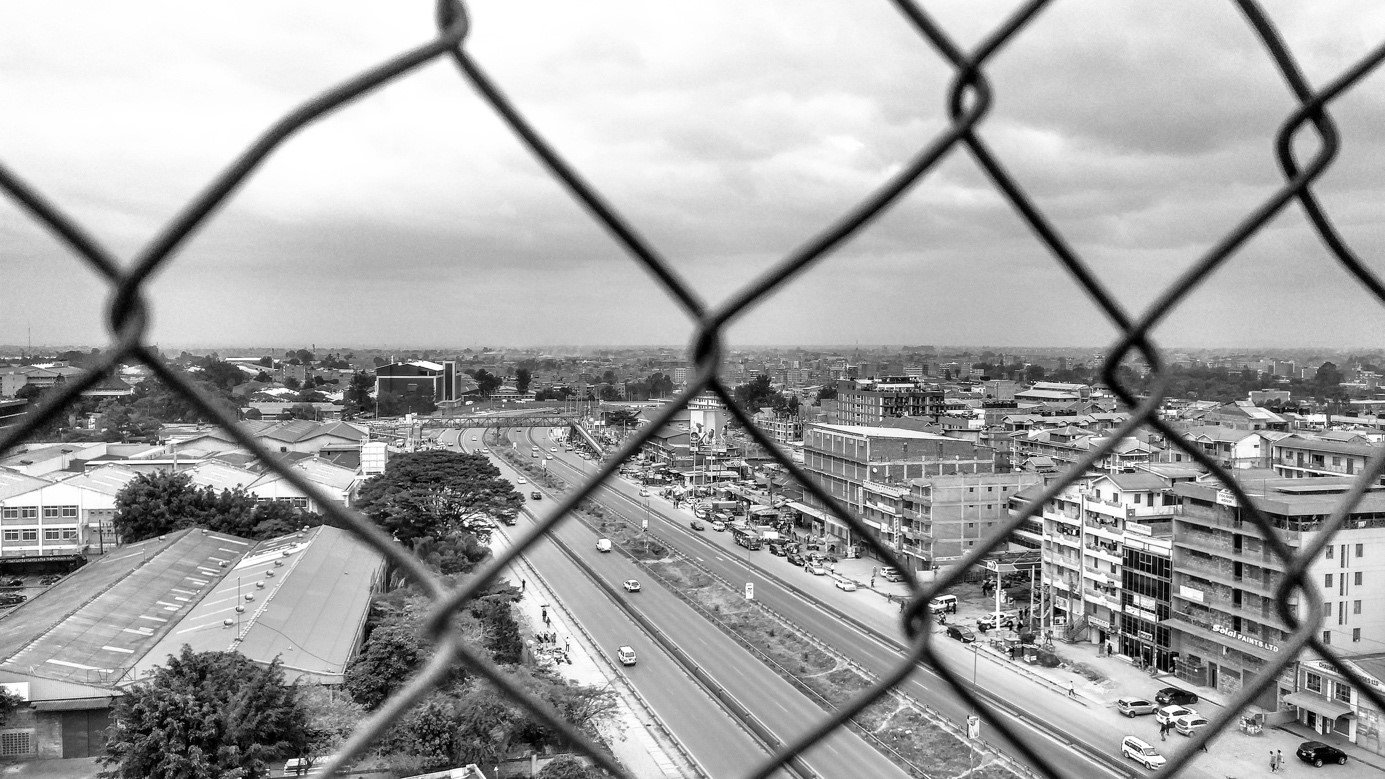Business As Unusual
“The question of transforming our way of life is no longer an issue, as our survival as a species depends on it. I personally think that Africa has an important part to play in this paradigm shift, especially in terms of urban development. What has long been considered as a ‘development gap’ is, on the contrary, an opportunity to do things differently and to give a new direction to the world.” Leandry Jieutsa, optimistic urban planner, explores the past and future of African urbanism and finds energy in the need for change.
By Leandry Jieutsa, optimistic urban planner & founder of Africa Innovation Network
Ruaraka, Nairobi, Kenya/Photo: Leandry Jieutsa
Business as unusual, three little words which put together form a short expression that alone contains the ideological quintessence and philosophy of thought that must guide our reflections and actions if sustainability is really our collective ambition.
In essence, all species on earth are guided by a primitive thought: Survival. Whether they are terrestrial or aquatic, they aspire to survive as much as possible by adapting to their environment and passing on to future generations the genetic heritage necessary to better adapt to changes and survive. Seen from this angle, can human beings, who are considered to be the most "intelligent" species on earth, really survive?
The quasi inaction towards climate change, the pollution of the oceans, the deforestation, the excessive modes of consumption, the marginalization of the most vulnerable are only a few examples that lead to question the ambition of human beings as a species.
The city, which is the main physical materialization of human existence as a society, is also the epicenter of its impact on the environment. Indeed, more than 4.46 billion people live in cities where between 60 and 80% of global GHG emissions are produced. It is difficult to understand how a single species grouped on 2% of the Earth's land surface (cities) can have such an impact on a planet that is home to more than 8 million interdependent species.
The question of transforming our way of life is no longer an issue, as our survival as a species depends on it.
I personally think that Africa has an important part to play in this paradigm shift, especially in terms of urban development. What has long been considered as a "development gap" is, on the contrary, an opportunity to do things differently and to give a new direction to the world.
To do this, African cities and territories must start from what defines them as African societies, notably cultural practices, social organization, ancestral practices, etc., in order to build sustainable cities and territories that limit the impact on the environment.
The African city must position itself as a model of sustainability by developing contextual approaches to urban planning that draw on local environments, socio-cultural practices, the climatic context, etc. Western approaches to urban design continue to show their limits. The African city must therefore be built by avoiding imported models and the copy and paste approach that does not fit with the contexts. The history of African civilizations such as Mali, Ghana, Songhai, etc., historical cities such as Timbuktu, Great Zimbabwe, Gao, etc., with their green architecture, stable socio-political organizations and prosperous economies, are perfect examples of how the African city can be built in a sustainable manner in accordance with the local environment. An example that urban development in Africa can be done with a positive impact on the environment while leaving no one behind. The future of African cities is therefore in this past that must be revisited and adapted to the aspirations and new challenges such as digital.
Rethinking our habits and lifestyles to limit our impact on the planet is not just a political, social or economic issue, but above all a matter of survival. If we care about our children living and thriving in their lives, we must change and act now.
Business as unusual, three words that must guide our actions if we want to survive.

